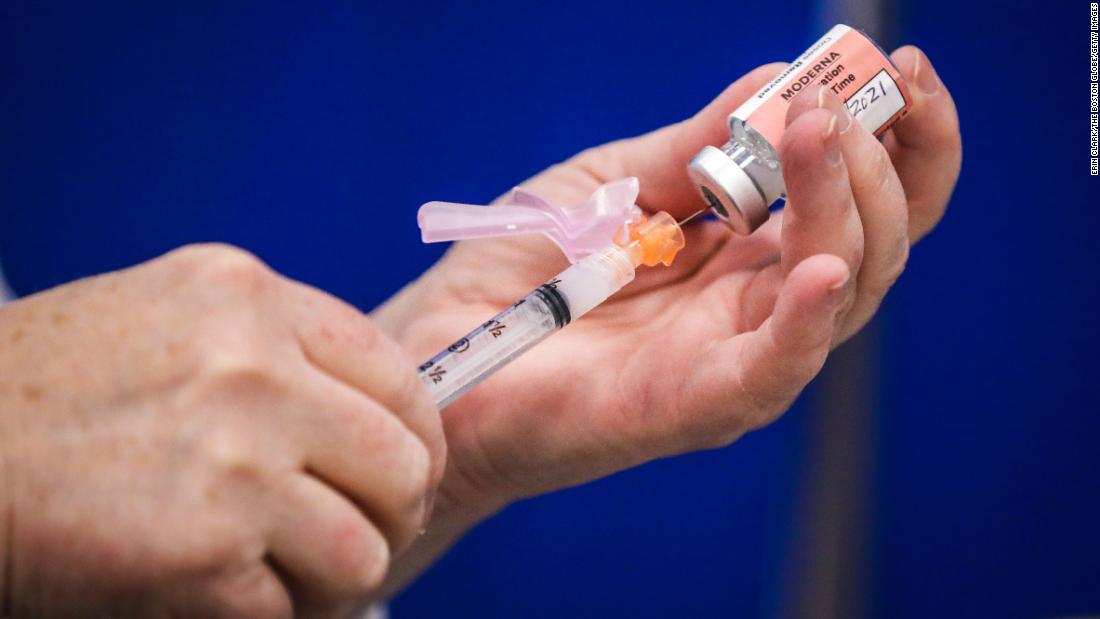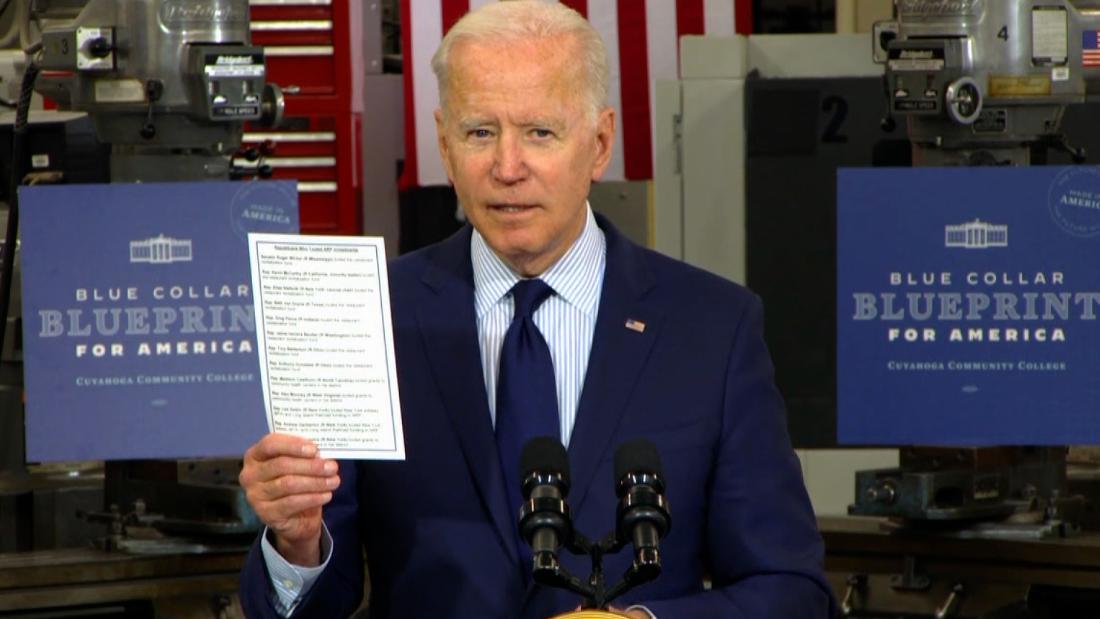| Like this newsletter? Tell your friends to sign up here. Questions about the coronavirus or vaccines? Ask here. And follow all our latest updates.
By Eliza Mackintosh, CNN Friday, May 28
There is good news for the United States as people get ready for Memorial Day weekend.
The US Centers for Disease Control and Prevention (CDC) is predicting that Covid-19 cases, hospitalizations and deaths will fall over the next four weeks. The CDC ensemble forecasts conclude that there will be a total of 596,000 to 606,000 Covid-19 deaths by June 19, down from a previous projection of 604,000 fatalities by June 12.
The improved outlook can be attributed to the continuing efforts by states to get people vaccinated. Already, 10 states have reached the Biden administration's goal of vaccinating 70% of adults against Covid-19 with at least one dose by the next US public holiday: July 4.
Many states and cities are offering prizes for people to get the Covid-19 shot. California is enticing residents with a whopping $116.5 million in freebies, touting it as the nation's biggest vaccine incentive program. In Minnesota, where Covid-19 restrictions on social gatherings end Friday, 100,000 residents who get vaccinated between Memorial Day weekend and the end of June will be eligible for state park passes, fishing licenses and amusement park tickets. New York City, meanwhile, will be parking vaccination buses at beaches and parks to offer free Covid-19 shots during the holiday weekend.
"Go, get vaccinated, hit the beach. Real simple," New York City Mayor Bill de Blasio said.
But, although inoculated adults are out of danger, some officials are concerned about vaccine hesitancy and lagging vaccination rates among those eligible.
So far, 62% of US adults have gotten at least one Covid-19 shot and 50% are fully vaccinated, according to CDC data. And about 50% of the total US population, including children over the age of 12, has received at least one Covid-19 shot and 40% of the population -- nearly 133 million people -- is fully vaccinated, the data shows. THE LATEST NUMBERS Global Cases 169,021,406
Global Deaths 3,512,719 US Cases 33,218,607
US Deaths 593,293 YOU ASKED. WE ANSWERED. Q When will you need to get a vaccine booster? A The short answer: Experts still don't know.
Top doctors, including CDC Director Dr. Rochelle Walensky, said the current thinking is that booster shots will be needed, but it's not exactly clear how soon. Experts say this depends on how fast the immune response falls off as well as which variants of the virus are in circulation. Walensky said this does not mean the vaccines are ineffective and people should still get a shot when they are available.
Participants in original vaccine trials are currently being followed so that their immune response can be analyzed, and there is some evidence that it does "fall off somewhat" over time, Dr. Peter Marks, director of the US Food and Drug Administration's Center for Biologics Evaluation and Research, said during a webinar on Thursday. "The exact timing of when boosters will be required will probably be a combination of two things. One, how fast that immune response falls off, but also it may depend on what variants of Covid-19 are circulating," he added.
Send your questions here. Are you a health care worker fighting Covid-19? Message us on WhatsApp about the challenges you're facing: +1 347-322-0415. WHAT'S IMPORTANT TODAY China hits back at US probe into possible lab leak with its own theory China has rejected any link between a virology lab in the city of Wuhan and Covid-19, after US President Joe Biden on Thursday directed the US intelligence community to redouble efforts in investigating the origins of the pandemic, including specific questions related to a possible lab leak.
Chinese Foreign Ministry spokesperson Zhao Lijian accused the US of "political manipulation and blame shifting," and countered with a theory of its own. Referencing Fort Detrick, a US Army biomedical research laboratory in Maryland that has been tied -- without evidence -- to the emergence of the virus by Chinese officials and state media outlets, Zhao said: "What secrets are hidden in the suspicion-shrouded Fort Detrick and the over 200 US bio-labs all over the world?"
Biden's directive came after intelligence officials told the White House that computer analysis of still-unexamined evidence might shed light on the mystery of Covid-19's origins, The New York Times reported Thursday, citing senior administration officials. It also comes as the Office of the Director of National Intelligence issued an unusual public statement Thursday on the status of its intelligence gathering into the genesis of the pandemic, publicizing divisions within the intelligence community about whether the virus escaped from a lab in China or occurred naturally.
A decision on holding Olympics without fans is delayed A decision on whether to hold the Olympics without spectators will not be made until after Japan lifts its state of emergency, the head of the Tokyo 2020 Games said on Friday, the same day that the government extended coronavirus restrictions for much of the country.
"We want to make a decision as soon as possible, but after the state of emergency is lifted, we will assess how we can make it open for general spectators following the direction by government," Seiko Hashimoto said. The state of emergency declaration will be extended to June 20 in nine prefectures, including Tokyo, he added.
The announcement came after a panel of experts gathered to review the Covid-19 countermeasures proposed for implementation at the Tokyo 2020 Games, the first of its kind since the country last reintroduced emergency measures in April as it grappled with a fourth wave of coronavirus cases.
Covid-19 antibodies may last for decades, though variants could reduce protection Important immune cells survive in the bone marrow of people who were infected with Covid-19, potentially pumping out antibodies for years, according to a new study.
The research, published this week in the journal Nature, suggests that memory B cells produced in response to infection with SARS-CoV-2 remain dormant in the bone marrow, ready to jump into action when needed. However, researchers said their presence does not necessarily ensure long-lasting immunity to Covid-19 and viral variants could reduce some of that protection.
"I think it's very important to make a distinction between having an antibody doesn't mean you're completely protected, that's very different," he said. "But what we should be excited about and encouraged about is you have these memory cells that are ready to jump into action once we have the virus or once we get exposed to the virus again." ON OUR RADAR
TODAY'S TOP TIP Anxious about social interactions over Memorial Day?
More than 37 million people are expected to travel for Memorial Day -- a big boost from last year's record low. But with half of Americans still unvaccinated and parts of the country experiencing outbreaks, there is a risk of new and more contagious variants spreading over the holiday.
CNN Medical Analyst Dr. Leana Wen has this advice for people who might be feeling anxious about social interactions over the long weekend: Take things at your own pace. Don't feel pressured to do something that you're not ready for yet. Decide what your comfort level is. Maybe you're comfortable with only seeing those who are fully vaccinated, or only outdoors. That's OK. Work your way up from a small gathering first. And enjoy! MORE FROM CNN CVS Health is tempting people who are hesitant to get the Covid-19 vaccine with lavish prizes — some of which were forbidden just a year ago. President Joe Biden on Thursday criticized Republican lawmakers who have touted parts of the Covid-19 economic relief law that benefit their constituents despite having voted against the law, saying: "Some people have no shame." Unsubscribe | All CNN Newsletters
Want to easily manage your newsletter subscriptions? Create your account.
Access CNN's Coronavirus Resource.
® © 2021 Cable News Network, Inc. A WarnerMedia Company. All Rights Reserved.
One CNN Center Atlanta, GA 30303 |
SUBSCRIBE TO OUR NEWSLETTER
Our Youtube Channel
Top Articles
-
Baird and NWSL general counsel Lisa Levine were ousted Friday in the wake of a rep...
-
A CDC order that went into effect requiring a negative COVID test before flying to...
eseries.in - All Rights Reserved 2023-2025







